

The Libertarian Futurist Society issued a press release on Friday, July 13th, announcing the winners (plural) of the 2012 Prometheus Award for Best Libertarian Novel.
The winners and finalists, with links to our reviews:
The Winners
The Finalists
The 2012 Prometheus Hall of Fame Award winner is “The Machine Stops” by E.M. Forster.
Our Take
We’re not sure we would have recommended any of the finalists for the Prometheus Award this year.
We haven’t read The Freedom Maze yet, so we can’t question its selection as a co-winner. Maybe it is worthy and we’ll discover this if and when we get around to reading it. Clearly it meets the criteria of the LFS voting membership.
While we enjoyed Ready Player One we do not think it was libertarian enough to qualify for the Prometheus Award. The same goes for The Children of the Sky and The Restoration Game.
While In the Shadow of Ares was libertarian enough, and apparently written by actual libertarians (unlike many Prometheus Award winners), and we enjoyed it, we do think the writing quality was not quite there. The authors are ones to keep an eye on, however.
We’re currently reading Snuff and, as one would expect from Terry Pratchett, it is well written. Whether we think it is unambiguously libertarian enough remains to be seen. We’ll publish a review in early August.
We’d love to publish a review of Delia Sherman’s The Freedom Maze, if anyone is interested in submitting one.
[continue reading…]
Help Promote Prometheus Unbound by Sharing this Post
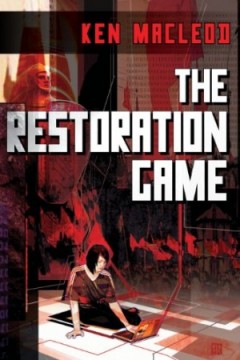

Having never read a Ken MacLeod novel before, I found my introduction to him to be a bit rocky. The opening chapters of The Restoration Game were replete with irritants. After that it settled down and started to tell an interesting story, but never quite managed to completely convince. It had the right ingredients for a better tale, but it could not get the doses right and wound up feeling, for all its positive points, out of balance.
The story’s protagonist, Lucy Stone, spent most of her childhood in the fictional Soviet Republic of Krassnia, but now works for a computer game company in Edinburgh. Her company is hired to make a Krassnian version of a popular medieval computer game, and her heritage and lingual abilities, rare to be found in the West, are the reason her company was chosen. There is more to this request for a Krassnian video game than is initially apparent, however. Lucy’s mother is a former CIA operative, and another man who might be her father is mired in the same kind of political intrigue. Through them Lucy gets entangled in an international plot the details of which are murky but the danger in which becomes increasingly apparent. Finally, she finds herself on a mission with consequences so far reaching that “epic” does not seem to do them justice.
[continue reading…]
Help Promote Prometheus Unbound by Sharing this Post
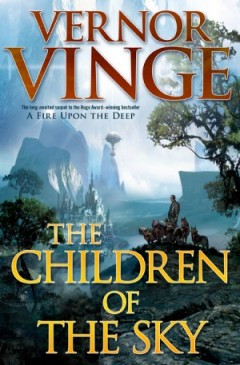
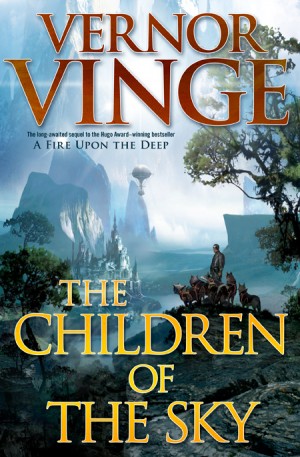
Back in February, the Libertarian Futurist Society announced the 2012 Prometheus Hall of Fame Award finalists. Over the weekend, on March 31st, they announced the 2012 finalists for the Prometheus Award for Best Libertarian Novel.
Below is the most of the press release.
io9 picked up the press release as well; the comments offer up a predictable ton of FAIL, so you might want to read them for a good laugh or avoid them if you have a low tolerance for stupidity and ignorance.
The first finalist on the list, The Children of the Sky by Vernor Vinge, was reviewed by Matthew Dawson back in February. But we still need reviews of the rest of the finalists, preferably before the winner is voted on.
As a reminder to our readers, we are open to submissions of reviews (as well as news, articles, interviews), whether you’d like to contribute regularly, irregularly, or just once.
So if you’d like to read and review one of the finalists, nominees, past winners, or another piece of fiction, we’d be happy to consider it for publication.
[continue reading…]
Help Promote Prometheus Unbound by Sharing this Post
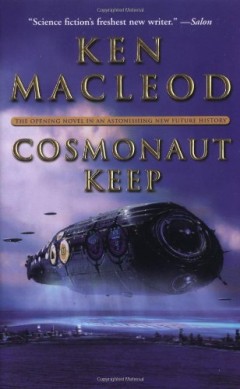
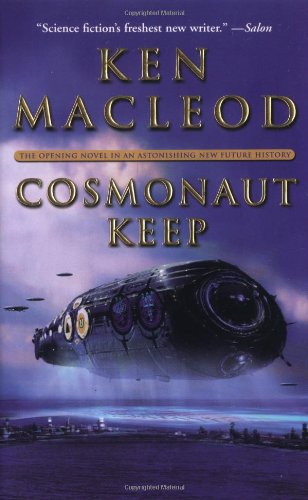
Cosmonaut Keep is the first book of the Engines of Light trilogy by Ken MacLeod, combining space opera with a unique take on the ufo mythos and a variety of leftist and libertarian political perspectives. It is told in two widely different alternating timelines, both focusing on the dream of interstellar travel.
The first timeline is set in a near-future Edinburgh, in a world where a neo–Soviet Russia has beaten back the United States and installed a kinder, gentler socialism in Europe. Matt Cairns is a computer programmer, and a member of the International Workers of the World Wide Web (or Webblies). He stumbles upon a group of American libertarians trying to overthrow the Party for fun and profit, and ends up carrying a mysterious data disk containing what appear to be plans for light-speed travel and an antigravity spaceship. Meanwhile, a rebellious European space station claims to have made first contact with aliens within an asteroid.
The second timeline is set on Mingulay, a planet in the Second Sphere, an ancient multispecies civilization. The two oldest species are the krakens and the saurs, both millions of years old. The krakens (bioluminescent and intelligent giant squid) navigate the lightspeed starships that ply the Second Sphere, while the saurs (secretive beings descended from bipedal dinosaurs who look suspiciously like the Greys of ufology) pilot gravity skiffs (read: flying saucers). In addition to two other species of hominid, there are also humans descended from those abducted from Earth by the saurs and taken to the Second Sphere over the millenia. Above all are the gods, superintelligent communities of extremophile bacteria who live in comets and asteroids, whose one and only commandment is “Leave us alone!” In this timeline, we follow Gregor Cairns — a member of the Cosmonaut Families, the descendents of the crew of a human-piloted starship from Earth — whose family has been working secretly on an interstellar navigation problem for two hundred years.
[continue reading…]
Help Promote Prometheus Unbound by Sharing this Post
















